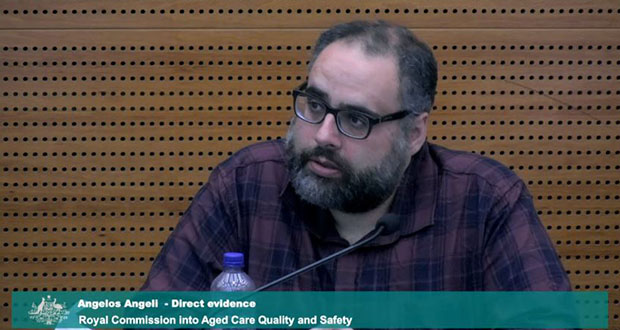The Royal commission started its second stint in Melbourne this week and is focusing on some of the sectors of society not yet heard from.
“Diversity is a hallmark of humanity, yet aged care providers and the aged care system as a whole have not always responded to needs that are out of the so-called ordinary. Some needs remain invisible,” said Counsel Assisting Peter Gray in his opening remarks.
The hearing intends to cover the rights of lesbian, gay, bisexual, transgender and intersex people; people who are separated from their parents, country and culture, including Forgotten Australians, former child migrants and the Stolen Generations; Aboriginal and Torres Strait Islander people; people who are homeless or at risk of becoming homeless; and our Defence Force veterans.
Gray set the tone for the week in his own sensitive remarks. “I wish to emphasise that where we do refer to diverse groups, we acknowledge that those groups are made up of individuals with individual needs and experiences,” he said.
The day started by hearing from Angelos Angeli, a social worker and only child, whose mother faces isolation and depression due to her lack of English language skills.
The Angelis, of Greek-Cypriot extraction, came to Australia as refugees when Angelo, 46, was a toddler. Now his mother has home care and when Greek speaking carers are not available (which is most of the time) she is alone.
“We did request Greek speakers ... because it was really difficult for mum to communicate and get her needs met, or her wants and her needs met, I should say, especially around attending GP clinics or … going to see my dad’s grave stone or buying anything from the local shop because she couldn’t communicate what she wanted,” Angelo told the commission.
Due to the lack of translators available his mother sees the doctor less and less and does not want to enter residential care. Depressed and alone, she relies solely on Angelo.
“It has gotten worse because unfortunately a lot of her friends have become unwell, and so they’ve been put in homes or they’ve passed. So, she has become socially isolated more and more.”
Angelo told the commission that they need to have access to care that is culturally sensitive.
“I think predominantly [it] is being able to communicate with people, that friendship. And understanding where we come from, I guess. And the religion is the other thing.”
Diversity framework more than ‘red tape’
The commission also heard from three witnesses, jointly, talking about a range of diversity issues.
Samantha Edmonds, policy and research manager, National LGBTI Health Alliance, spoke about her group's work which tries to make an inclusive aged care sector that looks after the needs of LGBTI elders who have “have lived through a time of intense discrimination and stigmatisation”.
Edmonds pointed to academic studies which show that LGBTI elders “experience mental health concerns or mental health issues at a significantly higher rate than the general population,” and have higher rates of self-harm, suicide and suicidal thought.
Noeleen Tunny, acting director, Policy and Advocacy Unit, Victorian Aboriginal Community Controlled Health Organisation (VACCHO), told the commission that urban aboriginal people want the same outcomes as those living in remote areas, like access to “high quality, culturally appropriate care that actually meets their needs”.
She said VACCHO also wants increased representation of Aboriginal voices in the aged care sector.
Urban Aboriginal communities face unique issues when it comes to accessing aged care as they tend to be more dispersed in comparison to those who live in remote areas. Tunney also told the commission that it is important to realise that although urban aboriginal communities may not “live traditional lifestyles,” they are “still culturally distinct from mainstream populations” and still “experience similar rates of chronic disease, almost identical rates of dementia and complex social needs”.
Edmonds told the commission that she would like to see the diversity framework, which was made in consultation with LGBTI, Aboriginal and CALD groups, become mandatory for all providers as part of the provider accreditation. She said that in the consultation process they had received pushback from the sector and its peak bodies.
Mary Patetsos, chairperson for the Federation of Ethnic Communities’ Councils of Australia, described her surprise at the peak bodies' reluctance to embrace enshrining diversity protections and their assertion that it is mere “red tape”.
“It became very clear to me in the direct conversation we had with the peaks that I had misunderstood something. I assumed that the peak representative of the bodies’ main purpose was to make sure that the industry did its job and did it as well as it could to support the community that it served,” she said.
“I didn’t think that their role was to protect the industry from possible burden of care.
“So when there was pushback and a description of them [diversity protections] as red tape I reflected again on whether they had anything in them that would be particularly offensive to a provider.
"On reflection, if you look at the framework and what it states … equity of access, empowerment, inclusion, equality, capacity and responsiveness, that in order to meet the standards, I would have thought that they are, in fact, mandatory obligations.”
The commission hearing runs until Friday October 11.
Do you have an idea for a story?Email [email protected]
 Aged Care Insite Australia's number one aged care news source
Aged Care Insite Australia's number one aged care news source

